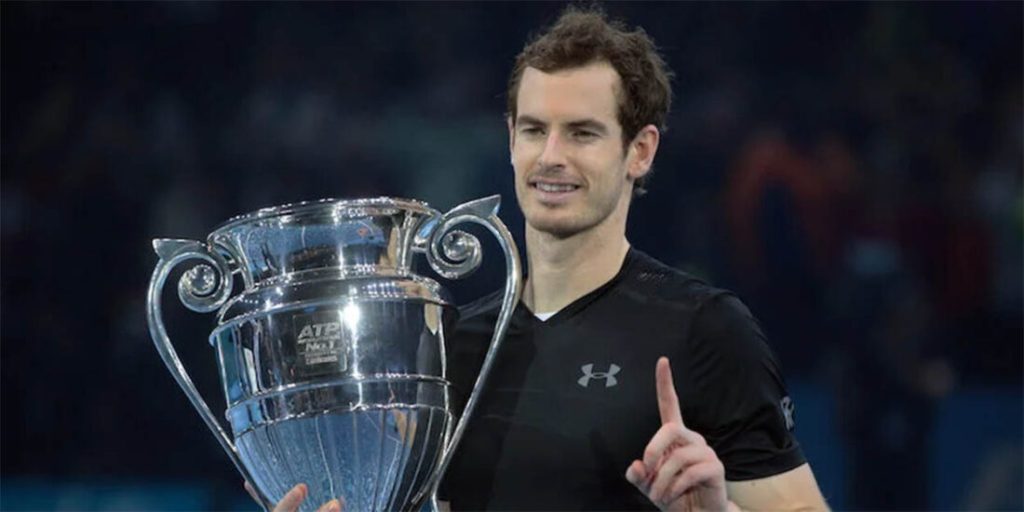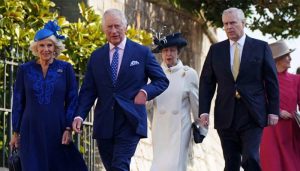
Thanks to the dominance of the ‘big three,’ we are fortunate to witness seemingly unbelievable accomplishments week after week. In 2016, Andy Murray, however, achieved what could be considered the most remarkable feat of this entire era: he overtook them all to claim the world number one ranking.
Andy Murray has something of an unusual position in tennis. Due to injuries, he is perhaps offered more sympathy than he is credit for his achievements. A lot of that is down to Roger Federer, Rafael Nadal and Novak Djokovic redefining the term ‘achievement’ in tennis, of course, but there is always a sense that Murray deserved more.
His quality is obviously recognised. In fact, for a brief spell, we all talked about the ‘big four,’ not the ‘big three,’ which is a remarkable credit to him. How many majors would Murray have won without having to battle the greatest three players of all time, though? How many more would he have got if his body had not broken down as it did?
His quality is obviously recognised. In fact, for a brief spell, we all talked about the ‘big four,’ not the ‘big three,’ which is a remarkable credit to him. How many majors would Murray have won without having to battle the greatest three players of all time, though? How many more would he have got if his body had not broken down as it did?
It’s all speculation and, as such, difficult to discuss with any kind of real credibility. What we can do, though, is remember what he did do, and in the second half of 2016, what he did was the stuff of legend.
The background
We say ‘in the second half’ of the year, but the truth is that Murray had a deeply impressive full season in 2016. He reached the final in each of the first three majors of the year, winning Wimbledon. In the other two he lost to Novak Djokovic.
He would, though, have the last laugh of the year over the Serbian. Ove the course of the season, they would face each other in five ATP Tour finals.
One of Murray’s finals that season was against Marin Cilic at the Cincinnati Masters. The Croatian won it in straight sets, but it still sent Murray into the US Open with confidence high, especially with a second Wimbledon title already achieved.
New York was a surprising bust for the Scotsman, though. He lost in the quarterfinals to Kei Nishikori. It was, remarkably, to be his last defeat on the ATP Tour that year.
Andy Murray sets out his stall
Despite his US Open disappointment, Murray still went into September as world number two. That was the good news.
The bad news was that it was Novak Djokovic who he trailed, and the Serbian had a commanding lead of 2,055 points. Murray, though, still saw nothing but opportunity.
“Trying to reach No 1 is a goal. I’ve never been there,” Murray said ahead of the Asia swing. “It’s something I would like to do for the first time, which is maybe more of a motivation for me than some of the guys that have been there before.
“I want to just try and finish this year strongly from a personal point of view. It’s been my best season to date, and I want to try to finish it as best as I can.”
Despite his bullishness, Murray knew that to achieve it, he would pretty much need to win every tournament and hoped for Djokovic to slip up.
Andy Murray makes his move
His first opportunity to close the gap came in Beijing. Djokovic was not in the field, so he stood to lose the 500 points he won there in 2015 just by not offering a defence. Murray, meanwhile, had skipped Beijing the year before, so he had everything to gain.
Murray makes his move
His first opportunity to close the gap came in Beijing. Djokovic was not in the field, so he stood to lose the 500 points he won there in 2015 just by not offering a defence. Murray, meanwhile, had skipped Beijing the year before, so he had everything to gain.
Further opportunity presented itself for Murray in Vienna, an ATP500 that Murray had not played the year before. Neither had Djokovic, but he was opted out again in the interest of managing his schedule. Again, Murray took full advantage to win the tournament and get another 500 points closer to the top.
Andy Murray – world number one
Events in Vienna and Shanghai meant Murray knew he could reach world number one at the Paris Masters. It was still a long shot, though.
For him to achieve it, he had to reach the final and hope Djokovic – the defending champion who had beaten Murray in the final 12 months earlier – did not.
Murray, of course, could only control his part of that, and he set about it in typically focused fashion. He booked his place in the final due to walkover. Milos Raonic, who the Brit had beaten in the Wimbledon final that year, pulled out before their match with an injury.
Djokovic, for his part, had already bowed out of the tournament. He lost in straight sets to Marin Cilic in the quarterfinals. Murray had done it – and reached another final.
That match was going to be a tester for Murray and his return skills too. John Isner was across the net and looking for one of the biggest titles of his career. For Murray, though, the prize was even greater.
He needed to absorb a second set tiebreak loss, but he won the match, the title and, remarkably, the world number one spot.
It was his 20th successive win and fourth title of the month. Andy Murray was world number one. It was the first time any player from outside the ‘big three’ had been world number one for nearly 12 years.
Djokovic hails Murray as ‘extraordinary’
They say that staying at world number one is even harder than getting there, and Murray faced an immediate test of that. In fact, he faced arguably the biggest test in men’s tennis: the ATP Finals.
The best eight players in the world descended upon London and Djokovic had the chance to regain top spot and earn another coveted year-end world number one.
Murray held the advantage in terms of points. He was defending just one round-robin win from the previous year while Djokovic defended the title.
It was fitting, then, that they met in the final, and even more fitting that Murray won to cement his position at the top of the game and be crowned year-end world number one for the first, and only, time.
“Andy is definitely number one in the world,” Djokovic said. “He is the best player.”
“He’s definitely a player who deserves that. Undoubtedly, much respect for what he has done. We have known each other since very, very early days.
“We were, I think, 11 years old when we first played against each other. And to see how he has raised his level in the last 12 months is quite extraordinary.”
Extraordinary was certainly the right word. In 2016, Murray became the first man in history to win a Grand Slam singles title, Olympic gold, a Masters 1000 event, and the ATP Finals in the same calendar year.
It was undoubtedly the world number one that meant the most to him, though. He held it for 41 consecutive weeks until injury struck him down – an injury from which he is still not recovered and now never will be.
For that reason, then, it becomes more important that ever that what he did in 2016 is never overlooked when discussing the great achievements of the greatest players during the greatest era of men’s tennis.





